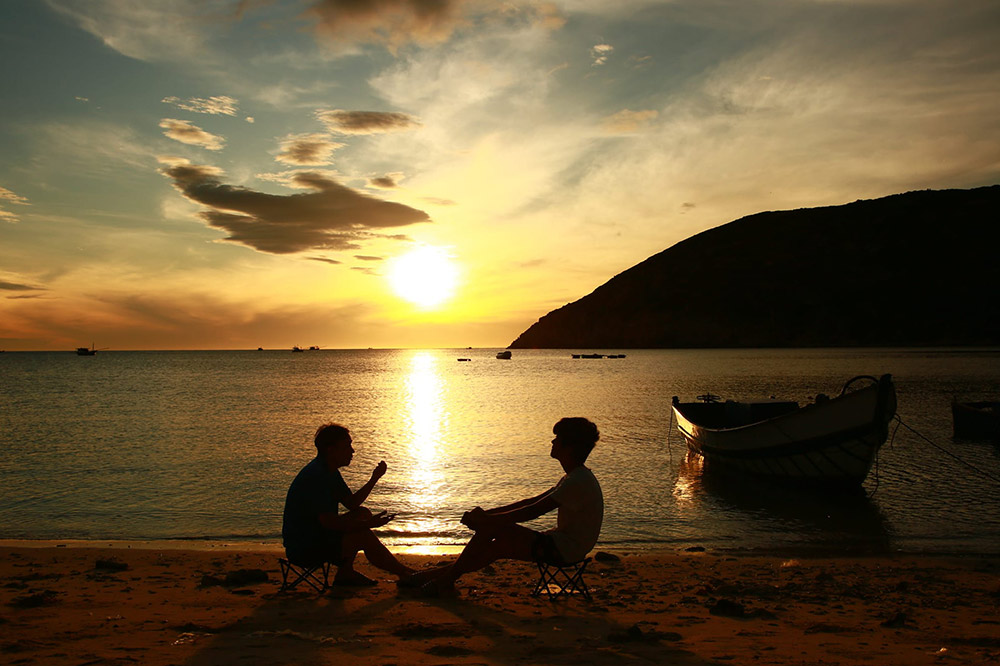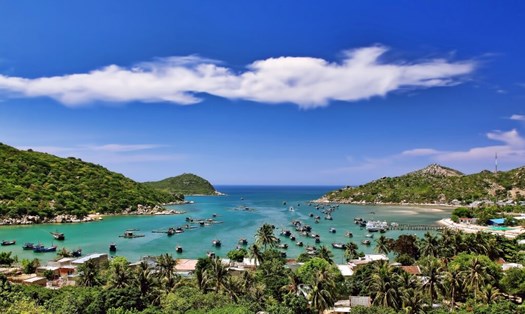Located in Vinh Hai commune, Ninh Hai district, Ninh Thuan province, Bai Thung is one of the beautiful but extremely wild beaches, not yet exploited for tourism.
Coming to Bai Thung in September, when the sea has passed its most beautiful season, Mr. Nguyen Thanh Tuan (38 years old, freelance photographer) still had to exclaim before the wild, unique but equally romantic beauty of this 400m long beach.
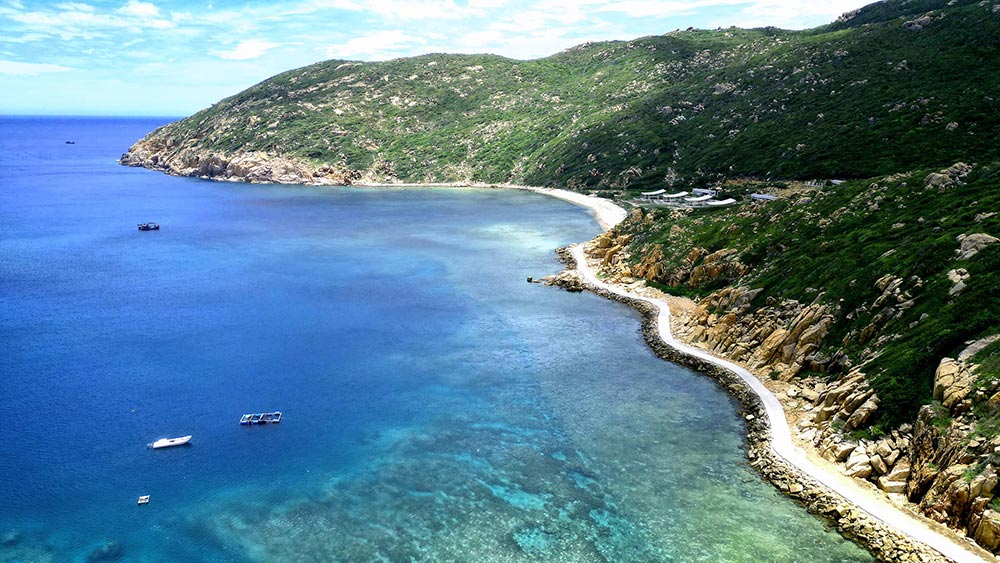
He shared that he knew about Bai Thung completely by chance: “During a long camping trip from Ho Chi Minh City to Khanh Hoa, while traveling along the Vinh Hy - Cam Ranh coast, looking down from a high pass, I saw a beautiful, deserted beach that was relatively easy to get to, so I went down to visit. Feeling that this place had beautiful scenery and was safe, I decided to camp right away.”
According to Mr. Tuan, the most unique feature of Bai Thung is its wildness, somewhat isolated, bringing a feeling of absolute peace and quiet, creating conditions for people to connect with nature: "Within a radius of 10km, there are no shops or houses. The space here is very natural, with only trees, blue sea, white sand, the sound of waves and the rustling wind."
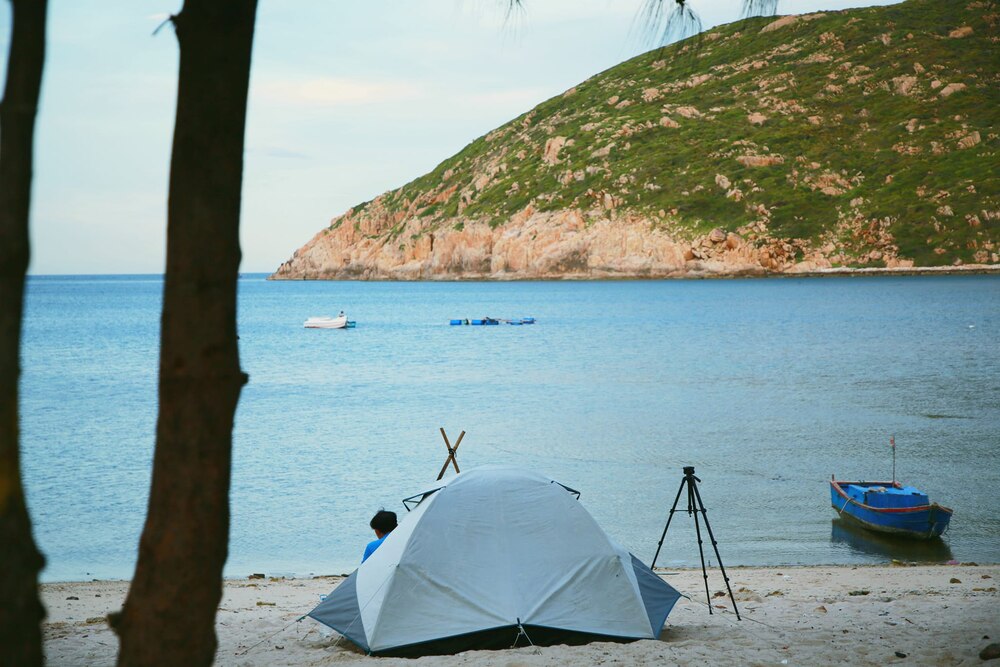
In particular, because it has not been exploited for tourism, the water at Thung Beach is especially clean and clear. Most of the visitors who come here to swim or camp rarely litter. If they bring food, they will also voluntarily clean up and gather in the right place to protect the environment. Therefore, Thung Beach rarely has ugly images such as plastic trash, nylon bags... floating around.
During the 2 days and 1 night here, Mr. Tuan had extremely interesting experiences when he was almost completely separated from technological devices, just immersing himself in the nature of the sea and sky.
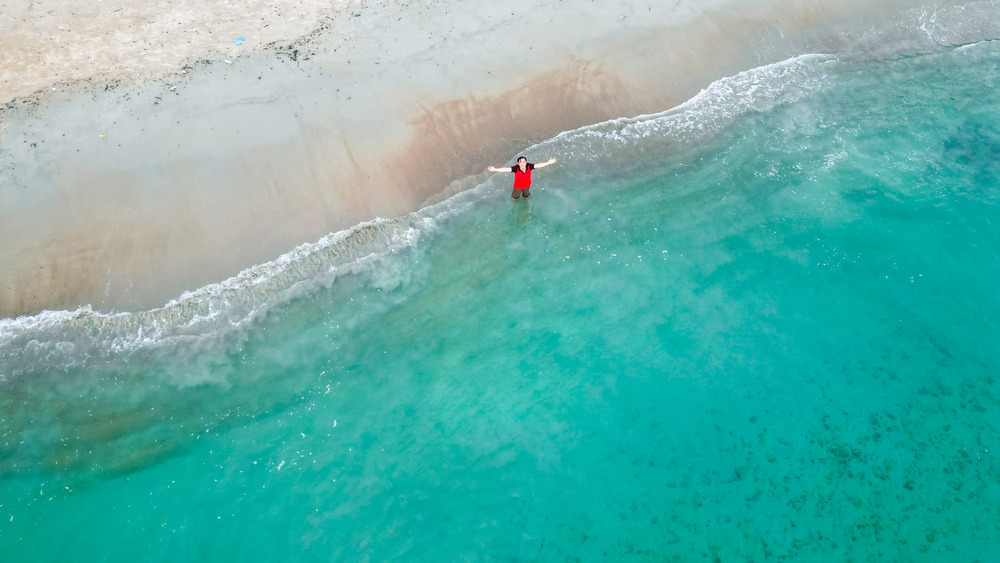
“There are no shops at Thung Beach, so I had to buy food from Vinh Hy center and then collect driftwood from the sea to cook for myself. The rest of the time I swam and watched the sea and the sunrise. At night, when the tide was low, I used a flashlight to go to the shallows to catch snails and crabs. Early in the morning, I had the opportunity to see fishing boats selling fresh seafood,” the male tourist shared.
Due to his previous camping experience, Mr. Tuan almost did not encounter any difficulties or unexpected incidents while camping at Bai Thung. However, he believes that tourists should be careful to ask permission or inquire with local people before deciding to camp or stay on the beach or in public places, not only at Bai Thung but also at other tourist destinations.
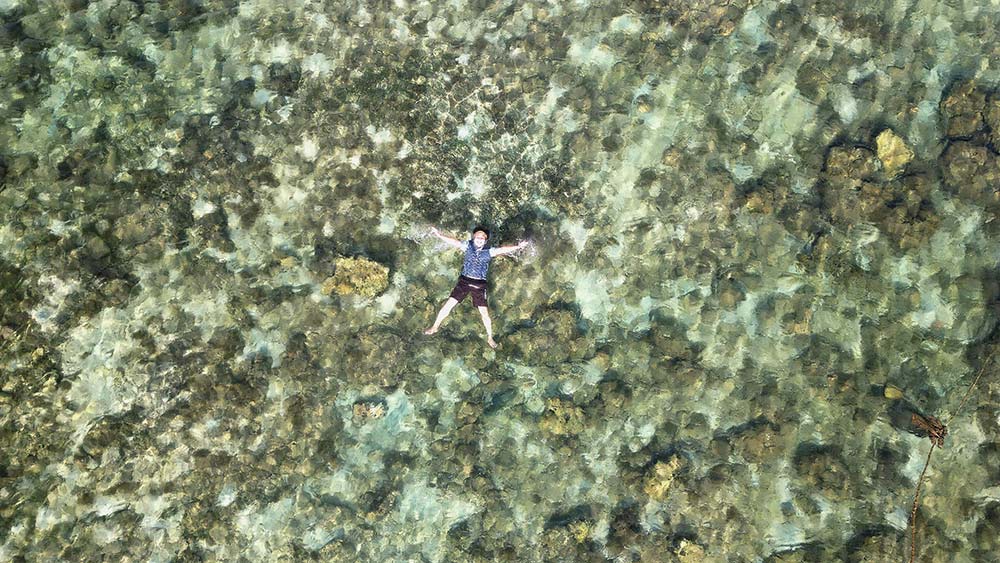
If you go deeper into the water, you can clearly see beautiful coral reefs. However, you need to be careful not to step on or touch the corals and wild animals to avoid allergies or injuries. Therefore, you should wear sandals or swim in a place with sand underneath to ensure safety.
In addition, one of the most important things visitors need to keep in mind if they want to camp at Bai Thung is to be aware of maintaining public hygiene.
“Bai Thung, Ninh Thuan is a pristine beach, there are no shops or motels around, only a hut built by a local to sell drinks and fresh water bathing services, so there are few workers to collect trash from the sea or from tourists. If you come to Bai Thung, please limit littering, try to put it in the garbage collection area so that the locals can easily handle it,” Mr. Tuan shared.
